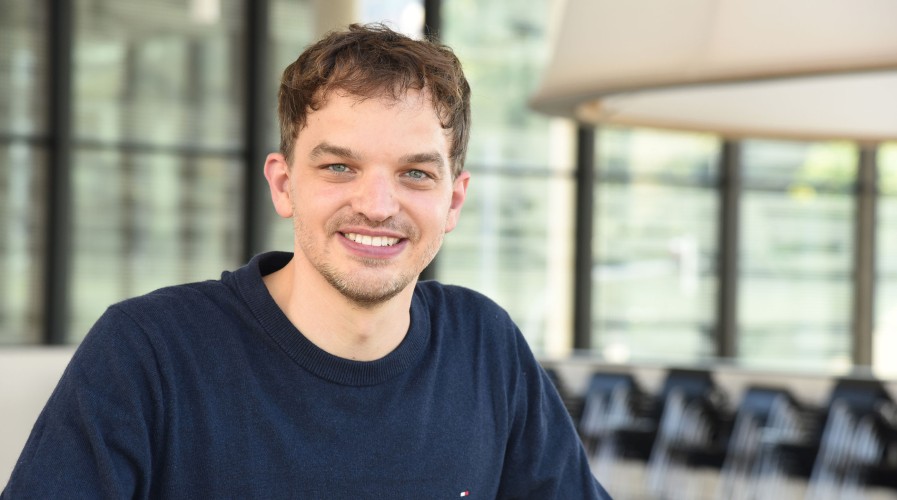New Bachelor's degree program in Engineering and Mechanics
Start in winter semester 2023/24 / Online application possible until 31 August
2023/06/16
The interdisciplinary Engineering Science and Mechanics (B.Sc. IWM) program builds bridges between physics, mathematics and engineering. Mechanics is an area that plays an important role in current developments in a wide variety of scientific and technical fields. Professor Dominik Schillinger from the Department of Civil and Environmental Engineering explains exactly what students can expect and what career prospects graduates will have.

Who is the program aimed at?
The Engineering Science and Mechanics (B.Sc. IWM) program offers a broad-based theory and method-oriented study of foundational engineering subjects. It therefore appeals in particular to high school graduates who have a high affinity for mathematics and physics and are interested in studying engineering, but do not yet want to commit themselves to a specific discipline. By being able to choose between basic and application-oriented specializations, students can keep this decision open until the second half of their studies.
What can students expect?
Compared to the subject-specific engineering programs such as civil engineering or mechanical engineering, the program is characterized by an application-oriented education that focuses on generally valid physical-mathematical principles and engineering methods in the first four semesters. In the fifth and sixth semesters, students can decide for themselves, according to their own interests and strengths, whether they want to expand their theory- and method-oriented education in the fundamentals-oriented specializations of higher mechanics or computational engineering, or whether they want to complement this with engineering-specific knowledge in the application-oriented specializations of civil engineering or mechanical engineering.
Professor Dominik Schillinger
The program appeals in particular to high school graduates who have a high affinity for mathematics and physics and are interested in studying engineering, but do not yet want to commit to a specific discipline.

What is the next step for students after the bachelor's degree?
Depending on the choice of specialization, graduates acquire the qualification for admission to the corresponding master's program without any requirements, i.e. M.Sc. Civil Engineering (with a focus on construction), M.Sc. Mechanical Engineering (or M.Sc. Aerospace Engineering), M.Sc. Computational Engineering or M.Sc. Mechanics. In addition, professional activities are open across the entire technological development chain, with a special focus on areas that require interdisciplinary knowledge, for example as computational engineers for issues in special civil engineering or structural dynamics, as employees in development departments in automotive and aircraft construction (crash test simulation, development of innovative materials) or medical technology.
Bachelors's program in Engineering and Mechanics (Language of Instruction: German)
The Bachelor of Science in Engineering and Mechanics (B.Sc. IWM) program offers a broad basic education in fundamental engineering subjects with a focus on mechanics. It appeals to high school graduates with a strong affinity for mathematics and physics who are interested in studying engineering but do not yet wish to choose a specific field of study. Initially, general physical and mathematical principles and engineering methods are taught. Students learn to understand, model, and analyze complex physical and engineering systems.
Starting in the fifth semester, students can either deepen their theoretical education (e.g., higher mechanics or computational engineering) or focus on specific expertise (e.g., civil or mechanical engineering). These choices allow them to keep their decision on a major open until they have practical experience in engineering.
Graduates of the IWM program are able to think abstractly and work between different engineering disciplines due to their basic education. They are enabled to participate in interdisciplinary projects to solve future engineering challenges. Depending on the specialization, they have the qualification for master's degree programs (such as Civil Engineering, Mechanical Engineering, Aerospace Engineering, Computational Engineering, Mechanics). At the same time, a professional career is open to them, especially in areas that require interdisciplinary knowledge. For example, they can work as computational engineers in special civil engineering, in development departments in the automotive and aircraft industries (e.g. crash test simulation, development of new materials) or in the field of medical technology.












